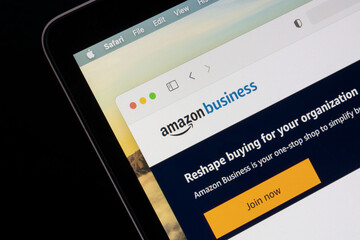In today’s digital age, remote work has become more than just a trend—it’s a viable career option for many professionals. Among the various remote job opportunities available, data entry positions stand out as a popular choice for those looking to work from the comfort of their homes. This article delves into the world of data entry remote work, providing insights into what it entails, the benefits of working from home, and how to find and excel in these roles.
What is Data Entry Remote Work?
Defining Data Entry
Data entry involves entering, updating, or managing information in computer systems or databases. This can include tasks such as inputting customer details, processing transactions, or maintaining records. The primary goal is to ensure that information is accurate, complete, and easily accessible.
Remote Data Entry
Remote data entry refers to performing these tasks from a location other than a traditional office—typically from home. With advancements in technology and the increasing acceptance of remote work, data entry positions can now be completed online, allowing individuals to work from virtually anywhere.
Benefits of Data Entry Remote Work from Home
Flexibility and Work-Life Balance
One of the most significant advantages of remote data entry jobs is flexibility. Working from home allows you to set your own schedule, making it easier to balance work with personal responsibilities. Whether you are a parent, a student, or simply someone who values flexibility, remote data entry can offer the perfect solution.
Cost Savings
Working remotely eliminates the need for commuting, which can save you money on transportation, parking, and work attire. Additionally, you can set up a home office with minimal costs, reducing expenses associated with maintaining a physical workspace.
Increased Productivity
Many remote workers find that they are more productive when working from home. With fewer distractions and a personalized workspace, individuals can focus better on their tasks. Additionally, remote work often eliminates the time wasted in daily commutes, allowing more time for work and personal activities.
Broader Job Opportunities
Remote work opens up a wide range of job opportunities that may not be available locally. For data entry professionals, this means access to positions with companies across the globe, expanding potential career options and increasing the likelihood of finding a job that fits your skills and interests.
Skills Required for Remote Data Entry Work
Attention to Detail
Data entry requires a keen eye for detail. Accuracy is crucial, as even small errors can lead to significant issues. Remote workers must be diligent in checking their work and ensuring that all data is entered correctly.
Proficiency with Technology
Since data entry is performed online, proficiency with various software and tools is essential. Familiarity with spreadsheets, databases, and data management systems will be beneficial. Additionally, basic computer skills, such as typing and using online communication tools, are necessary.
Organizational Skills
Effective data entry requires strong organizational skills. Remote workers must be able to manage their tasks efficiently, prioritize their workload, and keep track of deadlines. Developing a system for organizing and retrieving data can help streamline the process and improve productivity.
Communication Skills
Even though remote data entry work does not typically involve direct interaction with clients or customers, strong communication skills are still important. Clear communication with your employer or team is necessary to ensure that instructions are understood and any issues are addressed promptly.
Finding Remote Data Entry Jobs
Job Boards and Websites
Several online platforms specialize in listing remote job opportunities. Websites such as FlexJobs, Indeed, and Remote.co regularly feature data entry positions. These platforms allow you to filter search results based on your preferences, such as job type, industry, and location.
Also Read: The Best Remote Online Notary Platforms to Work For: A Comprehensive Guide
Freelance Platforms
Freelance websites like Upwork and Fiverr offer a variety of data entry gigs. These platforms allow you to create a profile, showcase your skills, and bid on projects. Freelance work can provide flexibility and the opportunity to work with various clients on different projects.
Company Websites
Many companies that offer remote data entry positions post job openings on their own websites. Checking the careers section of companies you are interested in can lead to discovering opportunities not listed on other job boards.
Networking and Referrals
Networking with other professionals in the industry can be a valuable way to find remote data entry jobs. Joining relevant online communities, forums, and social media groups can help you connect with potential employers and learn about job openings through referrals.
Tips for Succeeding in Remote Data Entry Work
Set Up a Productive Workspace
Creating a dedicated workspace at home can improve productivity and focus. Ensure that your home office is comfortable, well-organized, and equipped with the necessary tools and technology. A quiet environment with minimal distractions will help you concentrate on your tasks.
Develop a Routine
Establishing a daily routine can enhance your efficiency and work-life balance. Set specific working hours and stick to them, just as you would in a traditional office setting. Incorporating regular breaks and maintaining a healthy work-life balance is essential for long-term success.
Stay Organized
Keep your work organized by using tools such as task management apps, calendars, and to-do lists. Maintaining a systematic approach to your tasks will help you stay on top of deadlines and manage your workload effectively.
Communicate Regularly
Effective communication with your employer or team is crucial, even in a remote setting. Regularly check in, provide updates on your progress, and address any questions or concerns promptly. Good communication helps build trust and ensures that you are aligned with the expectations of your role.
Continue Learning and Improving
Stay updated with the latest trends and tools in data entry and remote work. Continuous learning can help you improve your skills and adapt to changes in the industry. Consider taking online courses or attending webinars to enhance your knowledge and stay competitive in the job market.
Conclusion
Data entry remote work from home offers numerous benefits, including flexibility, cost savings, and increased productivity. By developing the necessary skills, utilizing various job search strategies, and adopting best practices for remote work, you can successfully navigate this career path. Whether you are just starting or looking to advance your remote data entry career, understanding the nuances of working from home will help you make the most of the opportunities available in this growing field.
FAQs About Data Entry Remote Work from Home Online
Q1: What is data entry remote work from home?
Data entry remote work from home involves performing data entry tasks—such as inputting and managing information—remotely from your home. This type of work typically includes entering data into databases, spreadsheets, or other software applications, and can be done using a computer and internet connection from any location outside of a traditional office setting.
Q2: What are the benefits of working remotely in data entry?
Working remotely in data entry offers several benefits, including flexibility in setting your own schedule, reduced commuting costs, and the convenience of working from your own space. Additionally, it can lead to increased productivity due to fewer office-related distractions and a customizable work environment.
Q3: What skills are required for remote data entry jobs?
Key skills required for remote data entry jobs include strong attention to detail, proficiency with various computer software and data management tools, good organizational abilities, and effective communication skills. Familiarity with data entry software, typing speed, and accuracy are also important for success in this role.
Q4: How can I find remote data entry jobs?
Remote data entry jobs can be found through various online job boards and websites, such as FlexJobs, Indeed, and Remote.co. Additionally, freelance platforms like Upwork and Fiverr often list data entry gigs. You can also explore opportunities by checking company websites and leveraging networking connections for job leads.
Q5: What equipment and setup are needed for remote data entry work?
To work remotely in data entry, you’ll need a reliable computer, high-speed internet connection, and any specific software or tools required by the employer. Setting up a dedicated and ergonomic workspace in your home can also enhance productivity and comfort while working.
Q6: Are there any challenges associated with remote data entry work?
Challenges in remote data entry work may include managing distractions at home, maintaining a consistent work schedule, and ensuring effective communication with your employer or team. Additionally, remote work may require self-discipline and good time management skills to stay on track with deadlines and tasks.
Q7: How do I stay productive while working remotely?
Staying productive while working remotely involves creating a structured routine, setting clear work hours, and establishing a dedicated workspace. Utilizing productivity tools, such as task managers and calendars, can help you stay organized and focused on your tasks. Regular breaks and maintaining a work-life balance are also crucial for long-term productivity.
Q8: What are some best practices for remote data entry work?
Best practices for remote data entry work include ensuring data accuracy by double-checking your work, keeping your software and systems updated, and following data security protocols. Effective communication with your employer and adhering to deadlines are also important for maintaining professionalism and efficiency in remote roles.
Q9: How can I ensure my remote data entry work is secure?
To ensure security in remote data entry work, use strong passwords, enable two-factor authentication, and ensure that your computer and software are protected with up-to-date antivirus programs. Additionally, be cautious when handling sensitive information and follow any security guidelines provided by your employer or organization.
Q10: What should I do if I encounter issues while working remotely in data entry?
If you encounter issues while working remotely in data entry, reach out to your employer or team for assistance. Utilize any available support resources or troubleshooting guides provided by the employer. Additionally, maintaining open communication and addressing problems promptly can help resolve issues effectively and minimize disruptions to your work.




